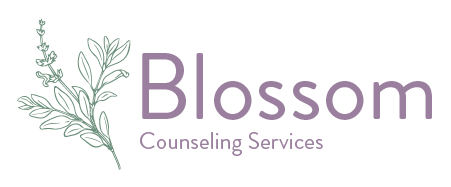Healing From Generational Trauma
Our Trauma Therapists are here to help.

What is Generational Trauma?
Who Can Benefit From Generational Trauma Healing?

Embark on a path to well-being with Blossom.

Start with Blossom
Fill out a brief form to share your story. It's the first step in our understanding of how we can best support you.

Personal Consultation
We'll have a one-on-one conversation to explore your needs and explain how our services can align with your journey.

Begin Your Healing
Once we understand your needs, we’ll start the journey together, focused on your well-being and personal growth.
Trauma Therapy Heals. Here’s How:
Healing from generational trauma begins on both an individual and family level. As an individual, it starts with educating yourself—understanding how trauma can be passed down and how it may be showing up in your life. Seeking therapy, prioritizing self-care, and building a strong support system are key. Exploring your family history can also help you make sense of patterns and behaviors that once felt personal or confusing.
Within a family, healing involves honest communication, setting healthy boundaries, and sometimes seeking therapy together. Creating new, positive traditions and practicing forgiveness—when and if you’re ready—can help shift the emotional legacy you carry. Remember, healing is a journey. It’s not linear, and it doesn’t happen overnight. But with support, intention, and compassion, it’s absolutely possible. You don’t have to do it alone.



Frequently Asked Questions
How does one heal from generational trauma?
Healing starts with awareness. Noticing patterns in your family—emotional silence, control, abandonment, fear, or codependency—is the first step. From there, therapy, somatic work, inner child healing, and education around trauma can help you name what happened, process it safely, and begin to shift your responses. Healing isn’t about blaming—it’s about understanding and choosing differently.
Is it possible to break generational trauma?
Absolutely. It’s not only possible—it’s already happening, every time someone pauses, questions, or chooses healing over harm. Breaking generational trauma doesn’t mean becoming perfect. It means becoming conscious. It’s choosing to parent differently, communicate more openly, or seek help even when it feels unfamiliar. Every small shift matters.
What are the 5 phases of healing trauma?
The phases can vary depending on the framework, but a common model includes:
-
Safety & Stabilization – Creating emotional and physical safety.
-
Remembrance & Mourning – Processing and grieving past trauma.
-
Reconnection – Rebuilding trust in self, others, and life.
-
Integration – Recognizing how past pain shaped you and reclaiming agency.
-
Legacy Work – Choosing what you want to pass down (or not), and living aligned with your values.
How to heal unhealed trauma?
Unhealed trauma often hides in the body, relationships, or the stories we tell ourselves. Healing involves connecting with a safe, supportive guide (like a therapist), learning to regulate your nervous system, feeling emotions that were once too much to bear, and practicing self-compassion. It’s not always linear, but it is always possible.
Insurance & Payment Information
Accepted Insurance Providers







New York State American Indian Health Program
What If I Don’t Have The Insurance You Accept? Can I Still Work With My Insurance?
We can provide a monthly superbill that you may submit to your insurance for reimbursement.
Therapy Fees
-
Individual Session: $120 (60 minutes)
What Is Your Cancellation Policy?
To cancel a scheduled counseling session, a minimum of 24 hours in advance of your session is required. If prior and timely notification is not given, you will be charged the full session fee for the missed session.
Get Started
You may call, text message, email, or fill out the form to reach us. We will respond within 48 hours, Monday through Friday.
We Will Help You Find Your Fit
We know that looking for a counselor can feel overwhelming.
We are here to help guide you to the counselor that is best for your needs. If that counselor turns out to
not be in our practice, that's okay. We know great counselors that we'd be happy to refer you to.
What’s most important to us is that you get connected with the help you need. We are here for you.
